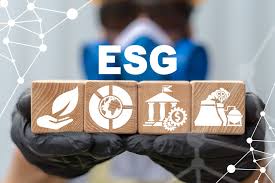Four Approaches to Building Carbon-Neutral Financial Portfolios
Climate changes are defining risks in the 21st century. Changing economies and alternating behavior of individuals require concerted efforts to drive. That is why many investors and other economic participants consider ESG (Environmental, Social, and Governance) criteria for a sustainable investing approach. ESG investment is no longer a side-stream but has entered the mainstream of PE and VC firms, regional and commercial banks, investment and corporate banks, advisory firms, stock exchanges, and other players.
ESG investment is crucial not only because of the increasing risks and changing expectations but also due to the lucrative economic opportunities it offers. Since ESG investing and business activities safeguard the common good, leverage ESG research results to build a carbon-neutral financial portfolio. Here are the four approaches that will support.
How Can ESG Research Change the Game?
Environmental protection has become an ultimate priority among governments, economies and communities. Issues like carbon emissions, deforestation, and climate change have serious consequences, which require urgent social changes, financial support, and political actions. To drive the ESG agenda, investors must support better reporting and disclosures. Over the last few years, investors have started contributing towards sustainability concerns like biodiversity, climate change, human rights, etc.
Four Approaches to Follow
- Dedicated ESG Investments
Over the last few years, new investment opportunities like impact funds, ESG-compliant infrastructure, and green buildings have entered the mainstream. Investing in these sectors will play a crucial role; however, building a carbon-neutral financial portfolio is not enough.
- Development of Individual Assets
Any asset owner will always expect their investments to evolve. The best approach is to let it evolve towards sustainability. It will reduce climatic impact in full compliance with the scenarios. For instance, the asset owners must talk to the companies about developing their carbon footprints.
Mandatory reporting is essential for a company’s business activities. Such reporting will provide information in a regularly updated and standardized form that can be available to the public. It will replace the work done by current-age engagement dialogues and start audition soon.
- Reduce Exposure
Investors must reconsider their allocations from time to time. If some assets do not fit their ESG investment strategy or do not develop according to the plan, they must decide reallocations when required. The key is to reduce assets that do not have a satisfactory approach to sustainability. If no such system exists, the last resort would be divestment.
For divestment, the investor will sell all investments, divisions, and subsidiary assets of an asset to maximize their value. The ultimate goal of divestment is to fulfil other social, political, financial, and business goals, which is sustainability in this case.
- Data-Driven ESG Research
Research experts in the ESG field take data-driven steps to execute climate change, customized ESG and SDG mandates for their clients. Based on their research results, they build databases, develop frameworks, write reports, analyze, and prepare presentations with multiple approaches. The research activities include risk assessment, opportunity assessment, climate financing, audits, analysis, and others. Long-term investments require ESG integration into the investors’ decision-making process, which research results support from different sides.
Start Building a Carbon-Neutral Financial Portfolio
Retail investors must evaluate a company’s ESG initiatives before making a direct investment. It can be tedious and time-consuming, which is best when left to experienced ESG research teams and managers. They have the necessary tools and expertise to analyze an asset’s ESG initiatives and financial performance to help their clients make correct investment decisions.
With informed investment decisions, the investors seek high returns while positively impacting society and the environment. Such investments use ESG compliant principles while protecting the environment; they are equitable and follow high governance standards. With rigorous research, fund managers can identify assets with high ESG values and invest money in them to generate high returns. The rise of the technology enables shareholders and stakeholders to evaluate the working of a business. Therefore, there is an increased need to measure and disclose sustainability performance. Based on the results, investors can start building a carbon-neutral financial portfolio and positively contribute to society.
ESG research addresses potentially underperforming and stranded assets that open up new opportunities while interpreting their risk/return profile. Due to the increased need to change activities, institutional and retail customers demand ESG-compliant and climate-friendly products or services. This is when research experts support suitable investments with carbon-neutral financial developments.










